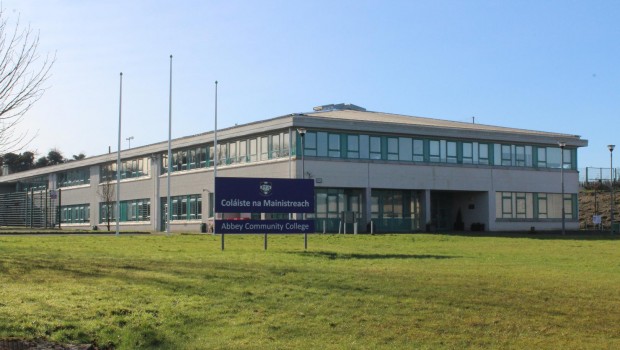Parenting Children with Autism: A Covid-19 Perspective

Over the next few weeks the HSE Psychology services for Galway, Mayo and Roscommon will be streamlining some key information for Boyletoday.com viewers based on the evidence of what works in similar circumstances. Our themes will be around building resilience, coping with cocooning, managing relationships, caring for those with disabilities and other vulnerabilities and sharing supports for those who are ill or bereaved. This week our theme is ‘Parenting children with autism:A Covid-19 perspective:
The Covid-19 pandemic has resulted in huge adjustments for families in Ireland, as the country grapples with the changes that constitute our ‘new normal’. In a short space of time, families have had to adapt to changes to important routines and structures that usually form the bedrock of everyday life.
As parents of children with Autism Spectrum Disorder (ASD) already know, routine and predictability can promote a sense of safety and well-being in a child with ASD. For some children, the reduction in daily social demands, as a result of being out of school, has led to a decrease in social anxiety. For others, the uncertainty of new arrangements may be leading to a heightened sense of anxiety.
During the pandemic, parents have the tricky task of trying to meet the needs of their child with ASD, whilst balancing the competing demands of work and family life. This can present both challenges and opportunities that are unique to each individual and their family. Psychologists from the HSE have put together the following 7 strategies and suggestions for parents and their children with ASD to help during this period:
- Parent self-care: It is important for parents to find ways to recharge the batteries and to create some space to look after their own wellbeing. Caring for a child with ASD can often result in parents making less times for themselves and this may be even more true during the pandemic. It may not be possible for parents to meet their previous standards and that is okay. It is good to remember that scheduling space for parental self-care provides good role modelling for children. This can be done by setting aside time for activities that promote feelings of rejuvenation and calm, whatever these may be. Visit the “wellbeing for parents” section at www.barnardos.ie for tips on self-care for parents.
- Reduce demands: The past two months have been particularly challenging for children with ASD. Within the current climate of change and uncertainty, it is likely that children are using significant emotional resources to cope. In helping them to adjust to these changes, it is a good idea to limit demands at this time, particularly in anxiety-provoking situations. This can include reducing academic demands and altering other goals that your child may be working on. For now, it is important that children with ASD feel safe and emotionally regulated. Visit www.autism.org/covid-19-
resources/ for further advice. - Exercise: Encouraging children to turn off their devices and to get outside can be challenging, particularly for children with ASD. Sixty minutes of daily physical activity has been shown to significantly reduce children’s anxiety levels and to improve mood and physical health. Children with ASD are more likely to spend more time on activities that are motivating, fun and of interest to them. For children who do not enjoy going for a walk, run or cycle, other ways may be found to squeeze in exercise-time, such as taking part in online exercise or dance videos, playing hopscotch and chasing games, or setting up a garden or living room obstacle course. www.gov.ie have created a helpful document on ‘Staying Active during Covid-19’.
- Routines: Establishing a daily routine for children creates predictability, which can help to reduce anxiety. Routines should be as consistent as possible, particularly relating to regular mealtimes and bedtimes. Children with ASD benefit from access to a daily schedule so that they are aware of the events planned for the day. Schedules for new routines can be created using simple drawings, photographs or templates available online. For support with creating schedules and routines, visit www.middletownautism.com.
- Practice old coping skills and learn new ones: In managing difficult situations, it can often be helpful to revisit coping skills that have worked well in the past. Children may need additional support with how they utilise their coping skills, for example, connecting with others via technology rather than in person. Strategies that can be useful include giving children the space to engage in sensory experiences that they find calming and doing activities that stimulate their interest. In general, new coping skills are best introduced slowly when children are feeling calm. www.asiam.ie provides guidance on coping with Covid-19 for children with Autism.
- Plan something to look forward to: Since many events such as communions, weddings and family holidays have been cancelled, it can be helpful for families to make new plans for delayed events or celebrations, if this is possible. In daily life, having something each day or week to look forward to, such as ‘art time’ or ‘movie night’ can bring a sense of joy and fun. Involving children in planning these events will help them to remember that they have the power to create some happy moments, even in difficult times. A lighthearted approach like this can be a powerful way to promote resilience within the whole family. Find ideas for activities for children and young people at www.cypsc.ie.
Stay Connected: Positive social support can enhance feelings of connectedness whilst people are being asked to stay apart. It can help to find ways to build in opportunities for social contact with others via phone or technology (such as Zoom, WhatsApp, or FaceTime). It is also perfectly okay for parents or children to say ‘No’ to participating in a call if this is not what they need at that time. Asking for help if needed is important. Although services and schools have been impacted by restrictions, many continue to offer support to families via phone and video link.
Final Thoughts
A silver lining of the current restrictions is the opportunity for families to spend time together and to bond with one another. Changes to household routines have required families to re-think how they go about their daily lives. Parents of children with ASD often have skills and experience in adjusting family life to adapt to their child’s needs. At this time, it may be useful for parents to remember all their previous successes in meeting challenges. The seven strategies outlined here are designed to promote the emotional well-being of families of children with ASD at a very uncertain time. Ultimately, although these strategies focus on how parents can support their children, it is equally important that parents are kind and compassionate to themselves. By taking good care of themselves, parents can rest assured that they are doing the best for their family.
Useful Contacts
- HSE Live 1850 24 1850 (Monday – Friday 8am-8pm, Saturday and Sunday 10am-5pm) www.2.hse.ie/coronavirus
- www.gov.ie – Guidance on supporting children and teenagers with ASD during Covid-19
- www.asiam.ie – Autism specific website with informational resources on coping with
Covid-19
- www.middletownautism.com – Middletown Centre for Autism – Autism specific website with a range of online resources relating to Covid-19
- www.autism.ie – The Irish Society for Autism
- www.inclusionireland.ie – Easy-read resources in relation to Covid-19
- www.cypsc.ie – Children and Young People Services Committee (search page for your county)
- www.tusla.ie/parenting-24-
seven TUSLA Child and Family Agency - www.mychild.ie – HSE website with information on pregnancy and first 3 years of your child’s life




